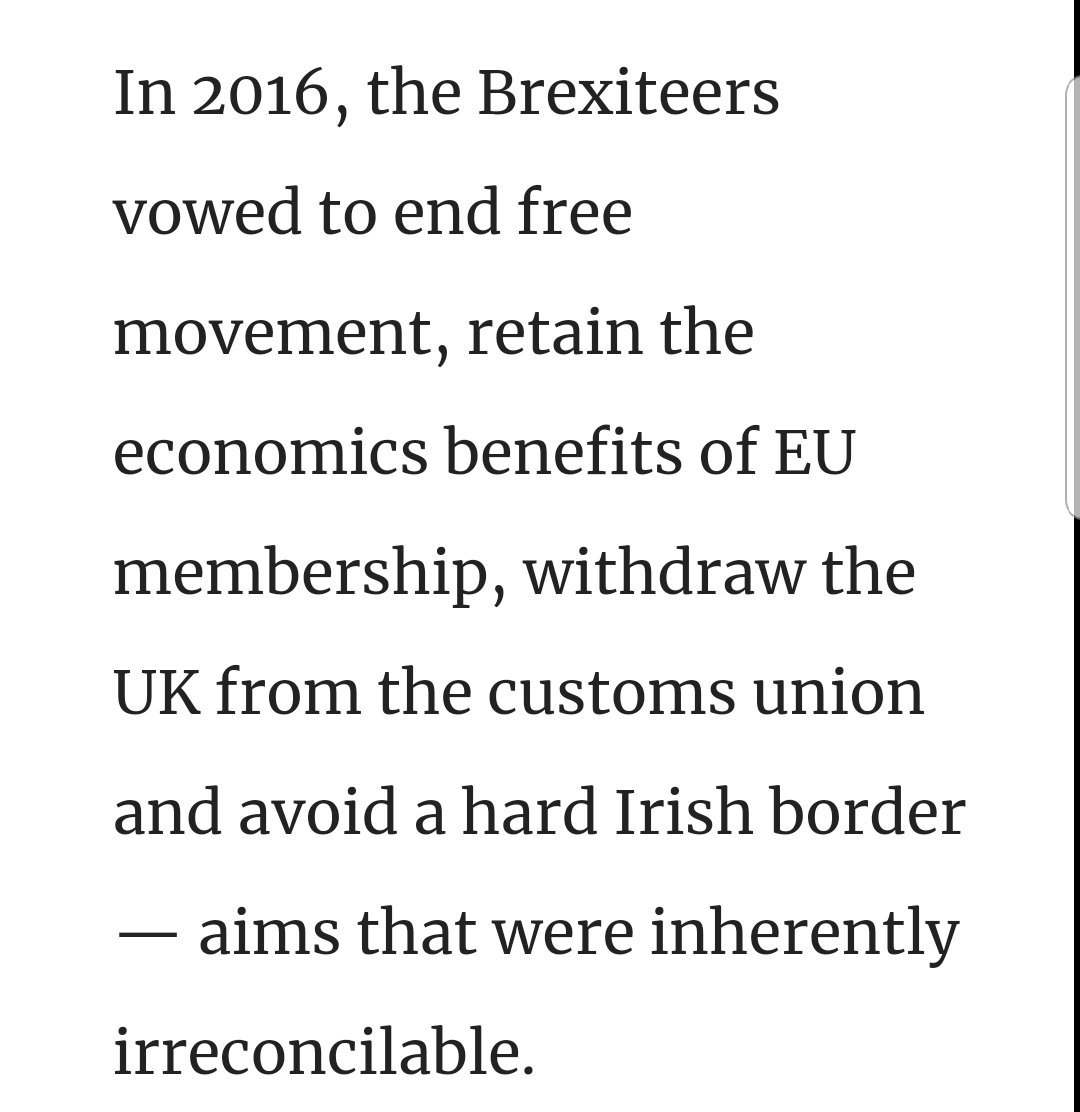All of the following thoughts are stated in a constructive spirit.
/1
/2
Collectively, I'll call these 'the federalist answers' /3
I could have also called them "the intergovernmental answers". /5
Sceptics have long been accused of being against federalism because they don't understand it. That it's actually about powers being delineated and dispersed. That, in the EU context, it's about uniting peoples not uniting governments. /6
The Brexiter is bothered by the fact *it's a state*. The fact it is also federal is to put an adjective in front of the noun (giving some respectability to the noun). /7
1. Using the term as a proxy for "building a state" (in the internationally-recognised 'nation' sense)
2. Trying to damage the respectability of the term. /8
One could thus argue that Brexiters are not against EU federalism because they don't understand it; they're against it because they do. /9
That ultimately is at the root of the feared loss of "identity" and why "It's not about the economy, stupid". /10
A United States of Europe.
The word says nothing of its internal structure or how far powers would be devolved *because that is seen by Brexiters as secondary*. /11
No, the centralisation they speak of comes from the power transfer out of the nations. /12
This is a point of contention between federalists & Leavers. Federalists tend to feel that bond; Others don't. No right or wrong. /15
With two contradictory Remain messages.
The opt-out one is very "British" but it also lost in 2016. The federalist one is arguably more attuned to the EU's goals but it wouldn't win in Britain (IMO) and only represents about <25% of voters. /20





